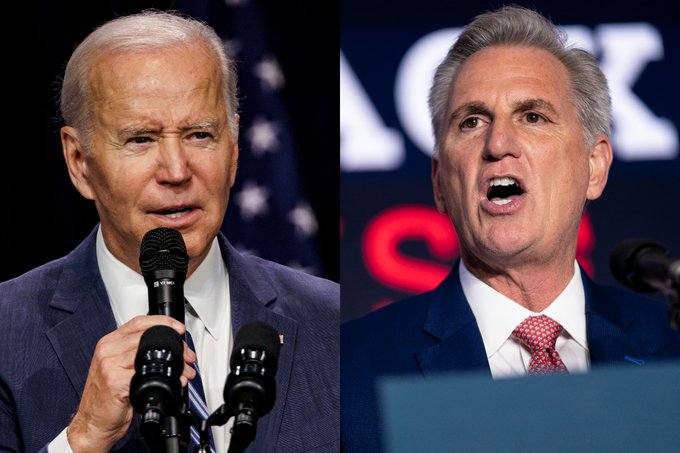The Speaker of the House has proposed tying government borrowing to future cuts in an effort to curb the spending binge of the Biden administration. Since some Republicans don’t want spending cuts before next year’s elections, he’s taking heat from them as well as the Democrats who want to keep running up the national debt.
House @SpeakerMcCarthy has thrown down the gauntlet at President Biden and the Democrats over the #DebtCeiling.
— The Epoch Times (@EpochTimes) April 25, 2023
McCarthy’s ultimatum, and Biden’s reply, set up a case of high-wire brinksmanship that will play out in the early months of this summer. https://t.co/r8HphEmmek
In January, Treasury Secretary Janet Yellen announced “extraordinary measures” to ensure the United States government could continue to meet its financial obligations after reaching its $31.381 trillion borrowing limit.
Speaker of the House Kevin McCarthy (R-CA) expressed confidence in the passage of his debt ceiling measure through the House in the coming weeks in an interview with Fox News on April 23. Vice President Biden and other Democrats are pushing to raise the federal debt ceiling so that the government can continue borrowing money to pay for its massive spending plans.
McCarthy believes the federal government has been spending over its means for far too long and wants to put an end to it. Biden wants assurances that the government’s spending growth would be halted in exchange for borrowing up to $1.5 trillion more through March of next year.
Biden is unwilling to talk with the House leader for a “clean” extension of the cap that places no restrictions on future spending, which is what liberals want. McCarthy is certain that he can pass the plan through the House with his five-seat majority, but he may face opposition from Republican senators.
As predicted, the motion was approved by a vote of 217 to 215 in the House on April 26. It will now be debated in the Senate, where it is certain to encounter strong resistance from all parties.
Republicans in the Senate share the goal of spending reduction, but they are frustrated that McCarthy’s bill would only address the debt ceiling for the next year. The Republicans are concerned that the issue may emerge again next year, months before the crucial midterm elections in November. They are concerned that the public will reject budget cutbacks and instead support the Democrats. However, something must be done about our rapidly increasing national debt, and McCarthy is the only one who appears to have a solution.








